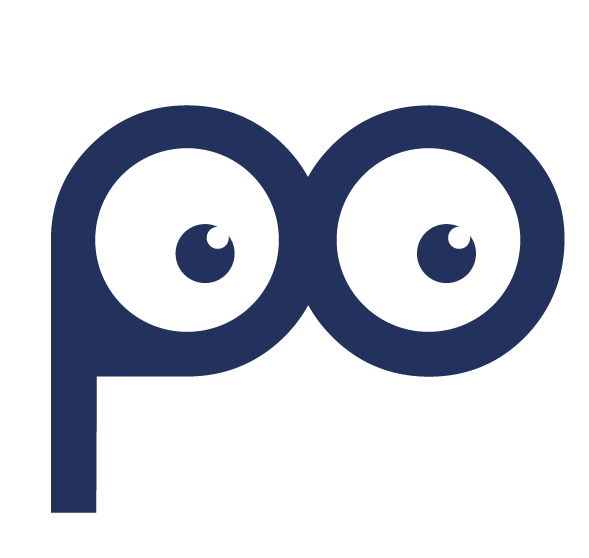Psychometric profiling in human resources
Psychometric profiling in human resources helps identifying the right candidate for a job position.
On the other hand, understanding in advance the aptitudes and attitude of resources and candidates towards a job position, a training plan or a specific company project represents an incredible advantage for the HR manager.
Standard profiling techniques such as Big Five models (OCEAN), Life satisfaction, Schwartz Values, IQ etc. they have long been a measurement tool in the HR field.
Today it is possible to enhance these models with artificial intelligence and detect the psychometric profile of employees and candidates in real time.
Written by portrait Team


Why employing psychometric profiling in HR?
Finding the right match between one’s personal aptitudes and the requirements underlying a job position represents a win-win: for the company, which optimizes its selection process and organizational productivity, for the person, who will be at ease in the workplace and with one’s profession.
Furthermore, identifying the staff’s attitude towards organizational progress or a new project allows us to anticipate needs, predict turnover risk and adapt the choices of the HR function.
In short, psychometric profiling applied to HR allows you to adapt internal communication and orient HR choices based on the profile of candidates and employees.

How to do psychometric profiling in HR?
The analysis of the function words used within a few exchanges of conversation or within the text contained in application forms, e-mails, messages, personal information, chats, for example, allows you to trace the psychographic picture of your resources such as, for example for example, the ability to work in a team and create empathy within the workplace, the level of motivation and self-confidence, the ability to learn and make decisions.
Knowing the main psychometric traits of your people allows you to guide HR choices in the preparation of training plans or new internal projects, in the selection and recruiting processes, in the collection of feedback and in assessment projects.

The advantages of psychometric profiling in HR.
The use of psychometric profiling in the HR field contributes to improving the quality of decisions and optimizing human resources management activities.
Psychometric profiling provides HR managers with a powerful tool to make more informed decisions, improve human resources management and promote a more effective and satisfying work environment for employees.
Psychometric analysis contributes to making personnel selection more effective, preparing personalized training and development plans, improving collaboration and the company climate, contributing to the reduction of turnover, effective management of change, improving internal communication, promoting objective evaluation of skills, facilitate the prediction of individual performances.


Resources for psychometric profiling in HR
Measuring the personality traits of employees and candidates is an important aspect of the HR function.
Knowing your people is the basis for building a solid organization.
Personality questionnaires such as the Myers-Briggs Type Indicator (MBTI) or Big Five Personality Traits (OCEAN), cognitive ability assessment techniques, assessment plans, behavioral interviews and psychometric tests: these are some of the tools used by HR managers to guide choices and personnel management strategies.
The application of artificial intelligence to the psychometric analysis of resources allows you to obtain results quickly and without bias, thanks to the analysis of the function words used within an application form, cover letters, CVs, e-mails , messages, personal information, chat…
Understanding the predominant psychometric characteristics of your team members provides valuable guidance for HR decisions, whether designing training programs or new internal initiatives, or selecting and hiring new resources . This awareness is also useful in collecting feedback and in skills assessment projects.

How does HR psychometric profiling work?
Psychometric profiling supports personnel selection by helping to identify candidates who best suit the specific needs of the role and company culture. By measuring personality traits, skills and behaviors, companies can make more informed hiring decisions.
Likewise, with psychometric analysis it is possible to identify areas of strength and development for each employee. This allows you to customize professional development programs, training and career paths, thus contributing to the growth and progress of employees within the organization.
Understanding the personality and work preferences of each team member helps improve collaboration and company climate, as well as predict and improve individual work performance.
During periods of organizational change, psychometric profiling can help understand how employees will react to the change. This allows HR to implement more effective change management strategies and prepare the best internal communication.
Additionally, psychometric profiling can help promote diversity and inclusion by identifying implicit biases in decision-making processes. By using objective tools, companies can reduce the possibility of discrimination and foster a more inclusive work environment.


What useful psychometric traits in HR?
In the HR field, several psychometric traits are relevant to understanding the skills, work preferences and personal dynamics of HR professionals.
Among the traits that can be detected with psychometric profiling techniques:
- the aspiration for self-realization in the workplace and to create connections with others,
- self-confidence and decision-making ability,
- the ability to manage stress,
- have good concentration and learning skills,
- the ability to create empathy,
- the propensity to work in a group or rather individually,
- the leadership attitude…
The ability to identify these character aspects in advance allows you to optimize the management of HR resources and processes.

HR PSYCHOMETRIC PROFILING KPIs
Key Performance Indicators (KPIs) in psychometric profiling in the HR field can vary depending on the specific objectives of the organization and the challenges it wants to address.
However, some common KPIs may include:
Hiring performance, based on the correspondence between the psychometric characteristics of the candidates and the requirements of the role;
Reduction of turnover, based on the correspondence between employee attitudes and expectations with the company culture;
Effectiveness in Training in improving employee skills and performance, based on psychometric characteristics;
Evaluation of employee satisfaction in the context of team dynamics and corporate culture;
Results of the assessments of the team’s skills and performance, in light of the psychometric characteristics, highlighting the areas of strength and development.
Source: PersonnelToday
More articles from our blog

Marketing Segmentation with Psychometric Traits
Psychometric profiling for marketing allows you to identify the main character traits and expected behavior of prospects and customers to set the communication strategy and marketing campaigns.

Technologies for the One Marketing Segment
Psychometric profiling for marketing allows you to identify the main character traits and expected behavior of prospects and customers to set the communication strategy and marketing campaigns.

Soft skills assessment
La profilazione psicometrica per le risorse umane, permette di identificare il candidato giusto per una posizione lavorativa.

FOLLOW US ON LINKEDIN
Curious to learn more about psychometric profiling for HR?
Follow us on Linkedin.

Offices
Viale Fulvio Testi, 128 20092 – Cinisello Balsamo (MI)
Headquarter
Via Meuccio Ruini 10, 42124 - Reggio Emilia (RE)
